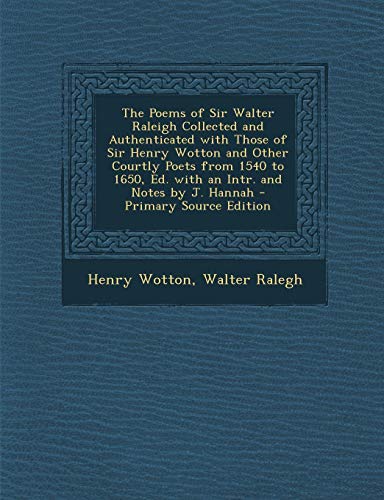What do you think?
Rate this book


298 pages, Paperback
First published January 1, 1951
How happy is he born and taught, That serveth not another's will... This man is freed from servile bands, Of hope to rise or fear to fall, Lord of himself, though not of lands, And, having nothing, yet hath all.And:
Virtue is the roughest way, But proves at night a bed of down.I sense some Stoic training in these lines. Wotton was a member of the House of Commons and an English diplomat before becoming provost of Eton College. From this small snippet of history, there is little wonder that Shakespeare emerged during this period, often regarded as the height of the English Renaissance. It was interesting to see Ralegh's use of smoke (from tobacco) and smoking pipes in his poems. Surprising, too, that Shakespeare died two years before Ralegh, supposedly from drinking, whereas Ralegh was beheaded. One of the many smoking stories about Ralegh suggests that he was nonchalantly smoking his pipe in the window of his cell in the Tower of London as he watched Essex being executed. I have generally avoided this period in history as I am yet to do a cover to cover reading of Thomas Hobbes Leviathan, and I am dreading a reading of the tome of Shakespeare's complete collection that is sitting there waiting for me when I can read without distraction. Yet all roads in English literature are leading to this period in history, and it was a pleasant surprise to learn something new about someone I had only ever known in the history books as a soldier and a maritime explorer.